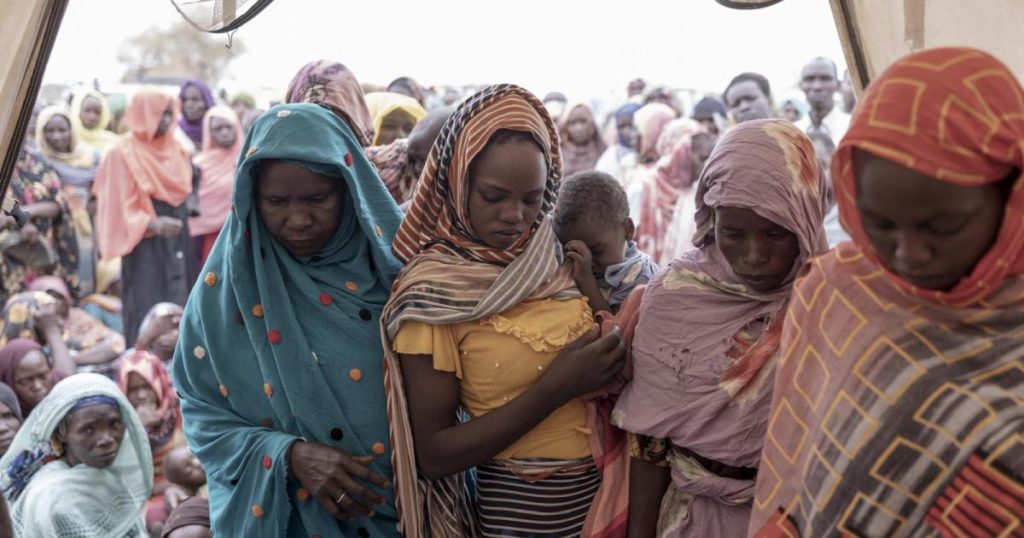Awatef Adam Mohamed, a mother of five, escaped the violence and hunger in Sudan’s Darfur region by crossing the porous desert border into Chad on June 8. The ongoing civil war in Sudan between the Sudanese Armed Forces (SAF) and the paramilitary Rapid Support Forces (RSF) has displaced 10 million people, leading to famine-like conditions across the country. As a result, hundreds of thousands of people are fleeing to Chad in search of safety and food. However, the lack of funding for the World Food Programme (WFP) has forced them to reduce food assistance, putting refugees at risk of malnutrition.
The reduction in food aid has led refugees like Omima Musa to trade their WFP rations for less nutritious but more filling food like white rice. This has resulted in increased malnutrition among children, making them more susceptible to illnesses like malaria, especially during the rainy season. Medical professionals like Musa Maman from Doctors Without Borders have warned of a potential increase in malaria cases in the coming months, as refugees struggle to survive in Chad. The trauma of fleeing violence and uncertainty about the future weigh heavily on families like Awatef’s, who have lost loved ones to the conflict in Darfur.
The RSF and the Sudanese army are accused of exacerbating the food crisis in Sudan by looting cities, attacking farmers, and restricting aid access to areas under RSF control. The army’s denial of permission for aid groups to ship food to West Darfur has forced hundreds of thousands of people to the brink of starvation, leading them to seek refuge in Chad. As the RSF continues to target non-Arab communities in Darfur, even Arabs are fleeing to Chad in search of food and safety. This influx of refugees from Sudan has raised concerns about potential ethnic tensions in Chad among Arab and non-Arab communities.
Despite the risks, refugees like Yassir Hussein have fled to Chad from areas where the RSF and allied militias have committed atrocities against the Masalit tribe. The Governor of Adre, Mohamad Issa, acknowledges the potential for conflicts between Arab and non-Arab refugees to spill over into Chad and emphasizes the need for humanitarian support to prevent ethnic clashes. Yassir, a Sudanese Arab refugee, expresses his hope for peace and unity among all refugees in Chad, emphasizing that they are all facing the same challenges and deserve assistance in their time of need. The plight of refugees from Sudan underscores the urgent need for international aid and support to prevent further suffering in the region.


